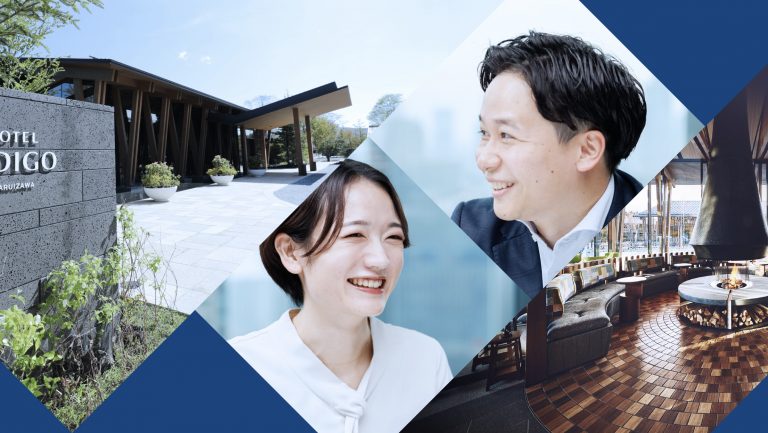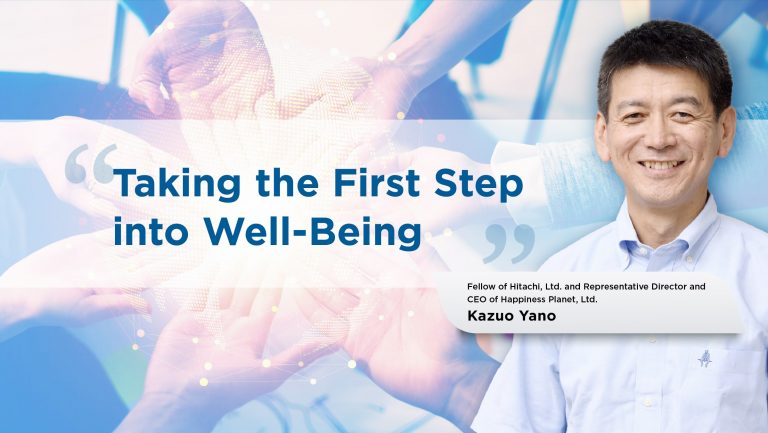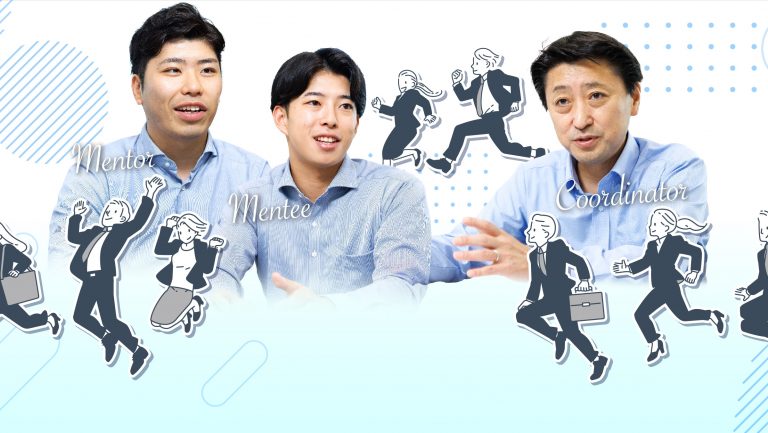
What Does Realizing Diversity Mean for a Company in the Context of the “New Normal?”
Jan 31, 2021
Diversity has recently emerged as an important issue for corporate management. We spoke to HARA Mahoko, Senior Managing Executive Officer, about diversity in the “new normal” as well as work styles that bring out the best capabilities of individuals.
Distinctions between Career-Track and Clerical Positions Are Unimportant

―― What is an organization’s ideal approach to diversity?
I think the basic idea is to create an organization or opportunity in which opinions backed by diverse values based on race, gender and age, or varied backgrounds, are on equal footing.
―― What made you realize the importance of diversity over the course of your career?
Right after graduation, I was employed by a Japanese bank in a specialist position instead of a management track, with the hope of developing expertise in international business. But once I’d joined, I discovered there was no clear distinction between the jobs of those positions, although specialists tended to be regarded below other company positions.
I feared that I’d be unable to pursue my professional goals and switched to a career-track job in my third year. Apparently, I was the first employee in the company to make that switch.
Then I joined a non-Japanese bank and worked as a member of the global business team. We participated in weekly teleconferences during which staff from 13 countries exchanged views as equals. I remember being surprised by how this was so vastly different from my previous work environment.
I was also shocked by the equal balance of men and women. Being the only woman in a large conference room had been the norm. This was long before the business world had recognized the term “diversity.” I think that my job change gave me the opportunity to realize the importance of incorporating diverse values.

―― You also have a wealth of experience working abroad in countries such as the United Kingdom and the United States. What’s the biggest difference between Japan and other countries in terms of diversity?
Based on my experience I personally do not favor categorizing employees into career-track or clerical positions. I think that it will be difficult to promote diversity in Japan as long as these distinctions persist.
In countries like the United States, job descriptions are commonly provided. Japanese companies may be able to increase diversity by adopting this approach to offer jobs according to individual skills and levels of expertise and by combining personnel with diverse characteristics.
While many women in American companies are primarily engaged in administrative jobs, they are nonetheless recognized as professionals based on their efforts to enhance their abilities and knowledge. That is why I tell anyone working at Tokyo Century to view themselves as professionals in their respective lines of work.
I feel that Japan needs to eliminate frameworks defined by gender or line of work and to develop a mechanism that encourages talented individuals to excel.
―― Conversely, are there any strengths or possibilities unique to Japan that could be used to realize greater diversity in companies?
It’s often said that the Japanese are better at turning “one into a hundred” by further developing existing technologies as opposed to starting from scratch. I also feel that the Japanese demonstrate greater strength when creating something new as a team. Such teamwork will surely serve Japanese companies as a strength in this age of diversity, and I also believe that work styles that facilitate team collaboration while enhancing individual strengths will become more important.
I Want Young Employees to Feel the Company’s Possibilities as They Work

―― When new graduates are hired by Tokyo Century, they can choose to be assigned to a business area they prefer, and I hear that Specialty Financing has become popular with new employees. What do you expect from young employees who will live through this age of diversity?
I have also had the impression that many new employees have expressed their preference for Specialty Financing. Perhaps it is easier to envision a career path there than in other business divisions.
Although the market is currently impacted by COVID-19, the aviation business, as an area showing growth in mid-long-term, seems to be particularly popular with individuals pursuing careers that span national borders. Many individuals also join the company with hopes of serving society, such as those who wish to contribute to Japan’s energy policy by working on renewable energy sources or who aspire to play a part in developing alternative energy resources that could substitute solar power.
On the other hand, once you’ve been employed by the company, you won’t always be able to engage in the kind of work you prefer or are drawn to. The accumulation of low-profile work, such as creating documents and analyzing data, also has a part in developing what may ultimately become a major project.
In that sense, it would make me happy if young employees would maintain a broad vision of the direction in which the company is heading and how they can contribute so as to steer their careers in the direction they want to go in the future. My responsibility as a manager is to create new businesses and offer support for individual careers so that young employees can feel the growth and possibilities of this company.
―― Encouraging exchanges between broad age groups is one way to promote diversity. What can younger employees learn in terms of diversity from long-standing Tokyo Century employees?
I believe many of our older employees place great value on human connections. They continue to stay in touch with friends from school or with those who may have participated in the same project in the past. My impression is that many of them maintain networks outside the Company as well.
Such networks often prove useful in work; for example, a single phone call can lead to an introduction to a company you want to approach. I also place great value on my relationships outside work. I have friends my age who are making a mark in their respective fields, and they all work so hard to achieve personal growth. They also provide perspectives that are different from my own, and I’m truly inspired when conversing with them.
Diverse Values Meet, Mix, and Generate New Ideas
―― What mindset is required for mutually recognizing diverse values and making the most of individual strengths amid such diversity?
I often encourage people to enhance their interpersonal skills, which requires broadening their perspectives through different experiences. When I talk with my Western colleagues, I feel they discuss a wide range of topics. In addition to work-related subjects, they have broad interests including books and movies, and they engage in enthusiastic conversations over wine at the dining table. New ideas may arise as you pursue broader knowledge, and being able to apply some of them to business could lead to making the most of your individual capabilities at work.
Communication with others generates ideas. For that reason, I hope employees will intentionally venture beyond their comfort zones while always maintaining an inquisitive attitude about everything. For instance, every question and answer session after a presentation represents a golden opportunity. I always tell my subordinates to build up a reserve for posing endless questions.

―― As the world heralds the arrival of the “new normal,” what is the significance of enhancing diversity in an organization?
While this is related to what I said before, new ideas do not easily arise from a uniform organization. Diversity will be essential for a company pursuing creative ideas and originality in the “new normal.”
―― Finally, please share your views of an ideal company in which every employee can make the most of their individual capabilities at work.
I believe that an ideal company should be a place where employees can always envision the challenges they seek to take on in the next stage of their careers as well as the future business unit they want to participate in and the kind of business they want to pursue.
For employees to have those hopes, the company as a whole, as well as each business unit, must clearly express their strategies for pursuing business. It’s also important for employees to be aware of the position and significance of their individual work in the context of the company’s overall operations.
Young employees who work at Tokyo Century will be the leaders of the “new normal.” The company has a mechanism in place for changing careers that facilitates moving to other divisions. I hope they will take full advantage of these systems and mechanisms to achieve their goals while also shouldering the responsibility of handing down hope for the next generation.

HARA Mahoko
Senior Managing Executive Officer
Became a member of Tokyo Century in 2011. Since then, she has been involved in various initiatives for advancing women’s participation and position, both inside and outside the Company. In April 2019, she received the first Trailblazer Award presented in Japan by Advancing Woman in Aviation Roundtable (AWAR), a non-profit organization.
*The contents of the article and the position titles are as of the date posted.
RECOMMEND ARTICLES
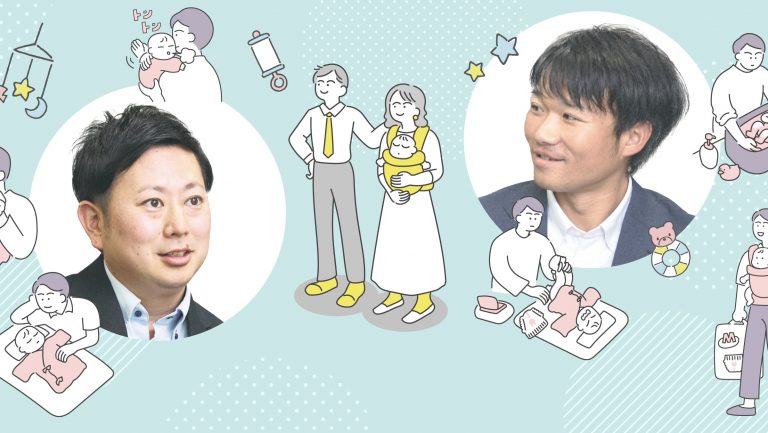
Feb 28, 2024
With the Act on Chil…
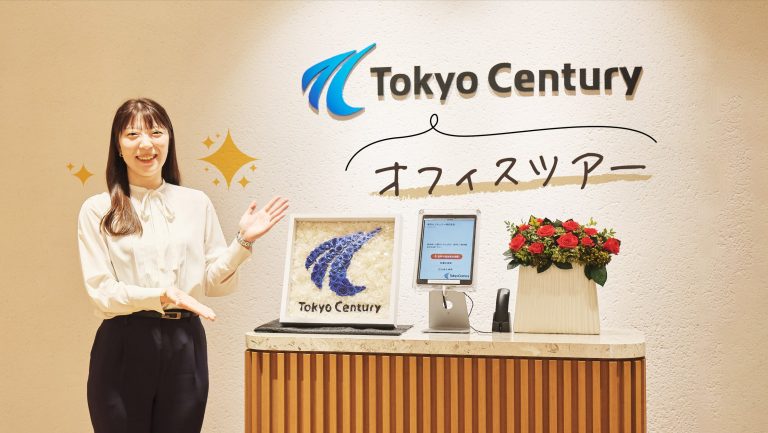
Sep 27, 2023
TOKYO TORCH is a new…


